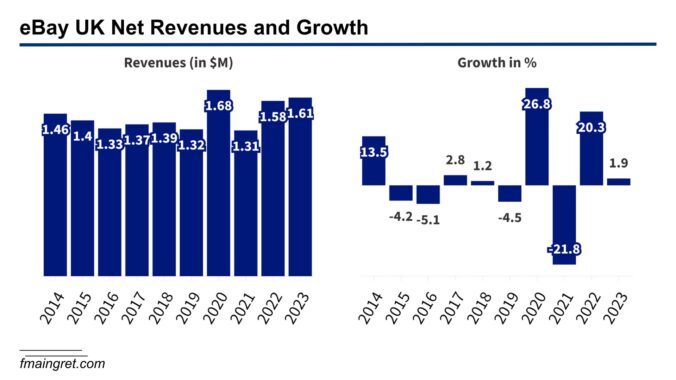One of the biggest complaints among Amazon, Walmart, or TikTok Shop sellers is the ever-increasing fees. But eBay UK has taken the opposite direction for private sellers (those who sell items occasionally for personal reasons, without the primary intention of making a profit or running a business). eBay UK has removed selling fees for private sellers across all categories, except for motors. After removing fees for fashion items earlier, eBay has now extended this policy.
They’ve also introduced new features like simplified listings, AI-generated descriptions, and tracked shipping with prepayment by buyers. eBay says they want to tap into an estimated £9 billion in resale potential from 294 million unused household items. I don’t think eBay would do this only to contribute to sustainability (although it helps), so let’s look at how removing fees for private sellers could impact both sellers and the company.
The Impact on Private and Professional Sellers
First, let’s see what this means for sellers. The removal of fees will obviously be good news for existing private sellers, who will generate more revenue from the sales of their items. This will also encourage people with stuff to sell to try eBay, as some may have been deterred by losing part of their revenue to platform fees. The new features eBay has developed will also make it easier for these sellers to list their products and close sales. Overall, this is great news for those who occasionally have an item or two to sell, as it will simplify the process and allow them to make more money.
On the other hand, an influx of new private sellers who can sell at lower prices means more competition for existing professional sellers. These sellers typically have the advantage of mastering the platform, creating compelling content, and understanding eBay’s policies. Making selling easier for private sellers will lower the barrier to entry and level the playing field. However, due to the restrictions on private sellers, I don’t think the volume of additional merchandise will be a major threat to existing sellers. eBay may also reduce the thresholds for what constitutes a private seller.
Why Would eBay Do That?
So why would eBay kill a revenue stream? After all, these fees are a major source of revenue in C2C ecommerce and on major marketplaces. New marketplaces typically start by offering lower fees to attract sellers and then gradually increase them as the platform matures. But eBay, as one of the oldest marketplaces, is taking a short-term hit by removing fees.
However, I see several upsides to this move. The main reason is that it could generate increased traffic. eBay already experimented with a similar strategy in Germany and saw a boost in traffic. Even if much of the new traffic consists of private sellers who don’t pay fees, some may enjoy the experience enough to become professional sellers, eventually generating more revenue for eBay. Let’s also remember that eBay earns revenue from more than just selling fees. With increased traffic and listings (and a potentially more competitive marketplace), eBay could make up for this loss by selling more of its additional services, such as advertising and payment processing.
Finally, I see this move as a smart way for eBay to differentiate itself from Amazon and Walmart by putting a stronger focus on C2C and second-hand items. I believe both eBay and Etsy made the mistake during the pandemic of trying to imitate Amazon by turning into another “everything store.” In my opinion, the sale of new (as the opposite of second-hand), mass-produced items from China diluted the value proposition of eBay and Etsy. Bringing in more private sellers can reinforce eBay’s core value and deliver greater value to customers.
Conclusion
Marketplaces typically face two challenges: attracting third-party sellers and attracting customers. Removing fees for private sellers will help with the former by making it easier and more appealing for new sellers to start on eBay, with the possibility of converting them into professional sellers. It also helps with the latter: customers love good deals, and the second-hand market is booming. More used items for sale could attract more customers. Overall, despite the short-term loss of fee revenue, I believe eBay made the right decision, and I look forward to seeing how this plays out.
https://www.ebayinc.com/stories/news/ebay-uk-announces-it-is-now-free-to-sell-across-its-categories

